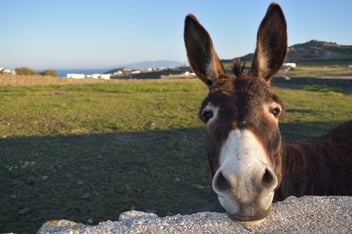No video selected
Select a video type in the sidebar.
There’s an old saying, no one really knows where it comes from, that goes like this: The best time to plant a tree was 20 years ago; the second best time is now. Which is really just a more elegant way of saying, Better late than never. Sure, we can all look back on our lives and name opportunities missed, roads not taken. We can beat ourselves up or feel sorry for ourselves and decide that a fulfilling life just isn’t in the cards for us. Or, we can decide it’s never too late to start doing. At Inner Matrix Systems, we don’t care if you’re just graduating from high school or getting ready for retirement, now is the time to start planting those trees. In this series, You + 20, we’re going to explore the various pillars of life over the long run. Where will you be in 20 years? Will they be your golden years or your prime career years? Your raising children years? Your adventurous years? Today we’re looking at, Who are the people you want to be spending your time with in 20 years?
The word community can mean a lot of different things to a lot of different people. For our purposes here, when we say community, we mean your people. Your family, your friends, your coworkers. The people you spend your life with; the people you commune with. When we’re young, elementary school, middle school, etc., we start the process of figuring out who we are and, just as importantly, who our people are. Who has similar interests, likes the same movies, plays with the same toys, has the same sense of humor. In those early years, we’re kind of like a pinball, bouncing between friends, dipping our toes in different waters. By the time we reach high school and certainly as we roll into our 20’s, we have a pretty good idea of the kind of people who light us up and the ones who turn us off.
With the exception of a spouse or romantic partner, most of us don’t choose the people in our lives. We certainly don’t choose our parents or our siblings, or anyone in our family, for that matter. But even if you think about your best friend in the world, I bet you didn’t meet by placing a want-ad or holding a “best friend” interview. More likely you just happened to sit next to each other in 9th grade algebra or maybe you were randomly paired in a college dorm room. The point being, for those first couple decades of life, we just kind of play the cards that were dealt to us. And don’t get me wrong, some of those cards are great ones to have in your hand and you want to hold onto them as long as you can. But as we get older, and the world opens up to us, how many of us make the choice to cultivate relationships that will take us to our 20 year vision for life? And how many of us continue to struggle inside relationships that, in their current states, clearly are not going to get us where we want to go? At Inner Matrix Systems we wholeheartedly believe that life is better when you live it intentionally, which includes having a vision for the relationships you want in your life, and taking action toward attracting and cultivating those relationships.
It’s easy to lose sight of how our relationships affect our quality of life. The people in our lives are, well…the people in our lives. The cast of characters playing the parts we expect them to play. We don’t question the nature of those relationships any more than we question the nature of the refrigerator. It just is what it is. Your sister holds on to resentment because you were mom’s favorite and it colors every part of your relationship. What are you gonna do? It just is what it is. Your best friend is going through her third divorce and clings to you for emotional support until you can barely breathe. What are you gonna do? It just is what it is. But here’s the thing, the quality of the relationships in our life actually affect us physically.
Back in 1938, researchers at Harvard University began a study to try and answer the age-old question: What makes us happy? Well, 85 years later, the results are in. And what the research shows is the number one key to a happy life is what they call “social fitness”. In the same way that you manage your physical fitness with routine and effort, it’s just as important to manage the fitness of your relationships. The authors of the study identified seven different categories of support that we get from, and contribute to, the relationships in our lives. When we cultivate and nourish our relationships in those different areas, we not only increase our quality of life, we actually live longer!
Human beings are social creatures. We evolved that way over hundreds of thousands of years. Being part of a larger community was essential for survival. Over countless generations, the nervous systems of those early humans developed strategies to ensure bonded, and therefore safe, communities. When two people share a laugh the brain is flooded with endorphins and all the good feels. And when they share a cry they form an emotional connection that can last a lifetime. Those things aren’t by mistake. They are strategic tactics that our nervous system uses to connect us to each other.
But we don’t live on the African plains anymore and we don’t face the kind of dangers that our ancient ancestors did. In fact, modern life makes it easier and easier for humans to live solitary lives. It’s ironic, in a world of 8 billion people, many of them packed into cities, living just on the other side of a wall from each other, that people are more alone than at any other time in history. The problem is, in order to feel safe, to experience love and happiness, we need to be connected to people. We need the people we can confide in, the people we can laugh with, the people who encourage us, the people who put us in our place. We need intimacy and fun and relaxation. We need a sense that we are part of something larger than ourselves.
So who are the people in your community? Who do you call when you’re feeling down? Who’s the person that knows all your nooks and crannies, the good, the bad, and everything in between? Who’s your go-to in an emergency or moment of crisis? Who’s your wingman when you’re ready to hit the town and get your groove on? We all have these people in our lives, or we’ve at one time had these people in our lives but maybe we haven’t done such a great job of cultivating those relationships. Whatever the case may be, it’s never too late to start paying attention to our community, to our people. Ask yourself, am I tending to my relationships, and am I nurturing them so that 20 years from now I’ll be surrounded by a rich forest of sturdy trees?
One of the key areas of life we tend at Inner Matrix Systems is relationships. The people in our lives and the health of our relationship with them have an enormous effect on our quality of life. Our Power Series is designed to provide you with the tools, techniques, and strategies for building, cultivating, and nourishing vibrant relationships with your community of peeps. And now is the perfect time to dive in! At the top of each Power Series season, we kick it off with a reminder about our Refer-A-Friend program, where if you refer a first timer to a Power Series weekend, they get it for $200 and you get 200 credits to use on Mastery Track programming. It's a win-win-win: you win with the credits and the opportunity to next-level your training, they win with the special pricing and the awesome new training opportunity, and then you both win in that you've got a built-in accountability partner and you're building, and are part of, a community of like-minded, growth oriented awesome people!
I mean what are the odds, Power Series Refer-A-Friend season kicks off just as we’re talking about tending relationships and building community? (It’s almost like we planned it that way.) By not going it alone, and sharing this work with people you live with, work with, play with, etc. you're planting a tree now for the community you'll get to thrive inside of for years, decades to come. Name a vision for what your community will look like, and start by inviting people on a journey of growth with you so you can grow together over the next 20 and beyond.



